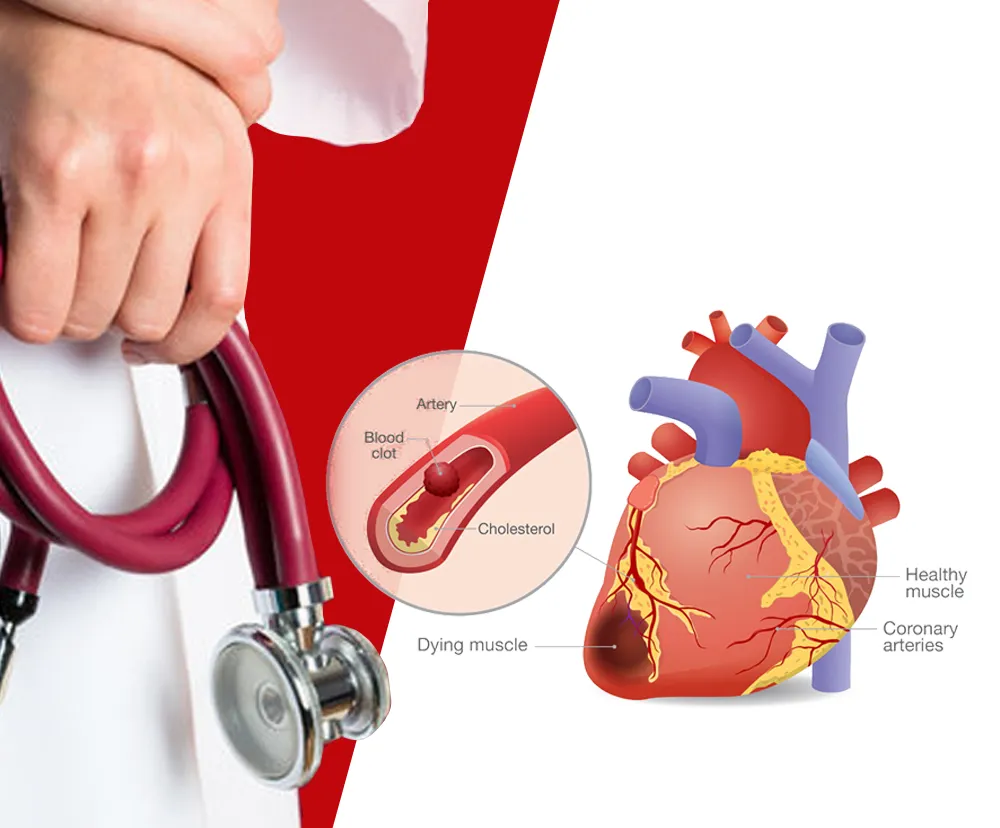Is Cancer Hereditary? Here’s How A Gene Test Can Help In Prevention And Timely Treatment
Is Cancer Hereditary? Here’s How A Gene Test Can Help In Prevention And Timely Treatment
Introduction
Cancer, a complex and multifaceted disease, has long been a subject of scientific inquiry and public concern. While lifestyle factors and environmental exposures play significant roles in cancer development, the question of whether cancer can be hereditary has garnered considerable attention. Understanding the role of genetic testing to identify the cancer gene, as it’s often referred to, is crucial in unravelling its mysteries and devising targeted prevention and treatment strategies.
Exploring the Genetic Basis of Cancer
At its core, cancer is a disease of uncontrolled cell growth resulting from genetic mutations. These mutations can occur spontaneously or be inherited from parents. While the majority of cancers are thought to be sporadic, arising from a combination of environmental factors and random genetic changes, a subset has a clear hereditary component.
Key Genetic Players
Several genes have been identified as potential culprits in hereditary cancer syndromes. Perhaps the most well-known are the BRCA1 and BRCA2 genes, which are associated with an increased risk of breast, ovarian, and other cancers. Mutations in these genes can significantly elevate an individual’s likelihood of developing cancer over their lifetime.
Similarly, mutations in genes such as TP53 (associated with Li-Fraumeni syndrome), APC (linked to familial adenomatous polyposis), and RET (associated with multiple endocrine neoplasia) can predispose individuals to specific types of cancer. These genetic aberrations disrupt normal cellular processes, tipping the balance toward malignant transformation.
Advances in genetic testing have revolutionized our ability to detect hereditary cancer predispositions. Genetic screening can identify mutations in susceptible genes, allowing individuals to take proactive measures to manage their cancer risk. For example, carriers of BRCA mutations may opt for preventive surgeries or enhanced surveillance to detect cancer at its earliest stages.
Genetic testing also enables personalized treatment approaches. Identifying specific mutations in cancer cells can guide the selection of targeted therapies, improving treatment outcomes and minimizing side effects. Additionally, genetic counselling provides invaluable support to individuals and families navigating the complexities of hereditary cancer risk.
Environmental Influences and Gene-Environment Interactions
While genetic predispositions play a significant role in cancer development, environmental factors cannot be overlooked. Interactions between genetic susceptibility and environmental exposures can profoundly influence cancer risk. For instance, individuals with inherited mutations may be more vulnerable to the carcinogenic effects of tobacco smoke, ultraviolet radiation, or certain chemicals.
Lifestyle and Environmental Factors
Lifestyle choices such as diet, physical activity, and exposure to pollutants can modulate gene expression and influence cancer susceptibility. Understanding the interplay between genetics and the environment is crucial in devising comprehensive cancer prevention strategies.
Ethical Considerations and Genetic Privacy
The widespread adoption of genetic testing raises important ethical considerations, particularly regarding privacy and confidentiality. While genetic information can empower individuals to make informed decisions about their health, it also poses risks of discrimination and stigmatization. At Lifecode for example, safeguarding a patient’s genetic privacy is paramount to ensure trust and confidence in genetic testing programs.
Furthermore, equitable access to genetic services is essential to mitigate disparities in cancer care. Efforts to increase affordability and accessibility of genetic testing must be prioritized to ensure that all individuals, regardless of socioeconomic status, can benefit from advances in precision medicine.
What Lies Ahead?
As our understanding of the genetic basis of cancer continues to evolve, so too do the opportunities for prevention and treatment. Emerging technologies such as next-generation sequencing and CRISPR gene editing hold promise in elucidating novel cancer susceptibility genes and developing targeted interventions.
Moreover, initiatives such as large-scale genomic sequencing projects and collaborative research consortia are accelerating the pace of discovery, paving the way for more personalized and effective cancer care. By harnessing the power of genetics, we can unlock new insights into cancer biology and ultimately transform the landscape of cancer prevention and treatment.
Conclusion
In conclusion, while cancer is a complex interplay of genetic and environmental factors, the hereditary component cannot be overlooked. Genetic testing plays a pivotal role in identifying individuals at heightened risk of hereditary cancers, enabling proactive measures to mitigate risk and improve outcomes. By unravelling the genetic mysteries of cancer, we can usher in a new era of precision medicine, where targeted interventions are tailored to each individual’s unique genetic makeup.
FAQs
- How can genetic testing help in the prevention and treatment of cancer?
Genetic testing can identify mutations in genes associated with a higher risk of developing certain cancers. Knowing these genetic predispositions allows individuals to take preventive measures such as increased surveillance, lifestyle changes, or even preventive surgeries. Additionally, genetic testing consultancy services like Lifecode can guide personalized treatment approaches by identifying specific mutations in cancer cells, which helps in selecting targeted therapies that improve treatment outcomes and minimize side effects.
- Which genes are commonly associated with hereditary cancer syndromes?
Several genes are linked to hereditary cancer syndromes, including BRCA1 and BRCA2, which are associated with a higher risk of breast and ovarian cancers. Other significant genes include TP53 (related to Li-Fraumeni syndrome), APC (linked to familial adenomatous polyposis), and RET (associated with multiple endocrine neoplasia). Mutations in these genes disrupt normal cellular processes, increasing the risk of malignant transformation.
- What role do environmental factors play in cancer development for individuals with genetic predispositions?
Environmental factors, such as tobacco smoke, ultraviolet radiation, and certain chemicals, can interact with genetic predispositions to influence cancer risk. Individuals with inherited mutations may be more susceptible to these carcinogenic effects. Lifestyle choices, including diet and physical activity, can also modulate gene expression and impact cancer susceptibility, highlighting the importance of understanding gene-environment interactions in comprehensive cancer prevention strategies.
- What are the ethical considerations associated with genetic testing for cancer predisposition?
The ethical considerations of genetic testing include concerns about privacy and confidentiality. Genetic information can help individuals make informed health decisions but also poses risks of discrimination and stigmatization.
Medically Reviewed by
Dr R RATHNADEVI ONCOLOGIST
Dr. Rathna Devi has 22 years of experience in radiation oncology. She has received special training in radiation oncology with expertise in branchytherapy procedures. Dr. Rathna is also specialized in female cancers, cancer screening and Cyber knife, which is the only system in the world to treat tumors in the body with sub-millimeter accuracy.
Other than radiation oncology practices, she acts as a member of many organizations like Association of Radiation Oncologists of India ESTRO, Cyber Knife Society, Association of Medical Physicist of India etc
Related Blogs :

Why You Need To Start Understanding Cardiovascular Disease
Slide HeadingLorem ipsum dolor sit amet, consectetur adipiscing elit. Ut elit tellus, luctus nec ullamcorper mattis, pulvinar dapibus leo.Click Here Previous Next What is the main information...


Life Saving Tips on how to stop Heart Attack
Introduction How to stop a heart attack in 30 seconds? Why time is of utmost importance? How to stop heart attack if you see signs of it...

Education: Master of Public Health (MPH) from the Postgraduate Institute of Medical Education and Research (PGIMER), Chandigarh Experience: A dedicated health writer with 8 years of experience covering a range of health topics, including public health and nutrition. His work has appeared on reputable Indian health websites and journals such as India Health Journal and The Health Times. Ravi also collaborates with Indian health agencies on public health campaigns.



